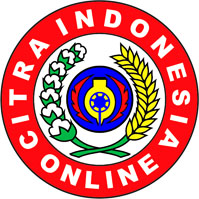Comprehending the Characteristics of Collaborative Understanding
In today’s progressively interconnected world, the capacity to function collaboratively is an essential ability. As conventional instructional standards advance to satisfy the needs of the 21st century, collective discovering becomes a pivotal principle. This short article explores the ins and outs of collective discovering, discovering its advantages, methods, and challenges, while offering understandings into exactly how it forms contemporary education.
Collective learning goes beyond merely working together.

It symbolizes an educational technique where individuals take part in a collective effort to gain knowledge, fix issues, and achieve a common goal. This approach emphasizes the worth of diversity in thought and fosters deeper understanding with interaction and common experience.
The Benefits of Collaborative Understanding
Collaborative understanding supplies a myriad of benefits, making it a preferred method in academic setups around the world. Among the primary benefits is the enhancement of important believing skills. As learners engage with peers, they are subjected to different viewpoints, encouraging them to evaluate and evaluate information a lot more seriously.
An additional considerable benefit is the enhancement in interaction abilities. Joint learning atmospheres demand energetic listening, articulate expression of ideas, and considerate discourse. These skills are important, not just academically, however in professional and social contexts also.
Cognitive growth is also notably bolstered with collaborative initiatives. Interacting needs students to articulate their thinking, difficulty presumptions, and integrate various point of views, resulting in much deeper cognitive processing and retention.
- Improved essential thinking
- Enhanced communication skills
- Boosted cognitive advancement
- Greater retention prices
- Fostering of social and management abilities
The cumulative effect of these benefits is an extra alternative academic experience. Learners not only get knowledge yet likewise establish essential life abilities that prepare them for future collaborative endeavors in any type of field.
Approaches for Reliable Collaborative Discovering
Applying joint learning successfully calls for thoughtful strategy and preparation.
Educators has to develop an environment for collaboration, where learners really feel secure and motivated to take part honestly. Here are some methods that can help with successful collective learning experiences.
Firstly, developing clear goals and expectations is vital. When learners comprehend the objectives and their duties within the team, they are more likely to engage meaningfully. Educators should interact these objectives clearly and guarantee they are aligned with the curriculum.
Secondly, making use of varied team structures can enhance the knowing experience. By differing team make-up, whether by skill level, passion, or history, teachers can boost vibrant interactions and a more extensive understanding of the material.
Obstacles in Collaborative Discovering
While collective discovering provides many benefits, it is not without its obstacles. One typical problem is the difference in group participant participation. Some individuals may control discussions, while others might be less inclined to add, leading to a discrepancy in the learning experience.
- Diverse degrees of involvement
- Possible for problem
- Time administration problems
- Numerous degrees of dedication
Moreover, disputes can emerge due to varying opinions, working styles, or misunderstandings. Educators should be equipped to take care of these problems effectively, cultivating an atmosphere where respectful dialogue prevails.
The Duty of Technology in Collaborative Discovering
In the electronic age, innovation plays a critical role in assisting in joint understanding. On-line platforms break geographical barriers, enabling individuals from varied locations to team up in real time. These devices provide a wide range of attributes that enhance collaborative initiatives, from shared records and discussion forums to virtual meeting areas.

Technology not just expands the range of who can take part in joint discovering but likewise enhances the top quality of communication. Learners can access a broader range of sources, involve with interactive material, and apply educational encyclopedia their knowledge in innovative methods.
Future of Collaborative Discovering
Looking in advance, the future of collective knowing shows up promising. As universities remain to accept innovation and innovate instructional approaches, cooperation will likely come to be a cornerstone of finding out experiences in any way levels of education.
Ultimately, the significance of collaborative knowing lies in its ability to equip individuals through shared initiative and good understanding. As we progress, cultivating these experiences will certainly be essential in preparing learners not simply to do well academically, however to prosper in a complex, interconnected world.

